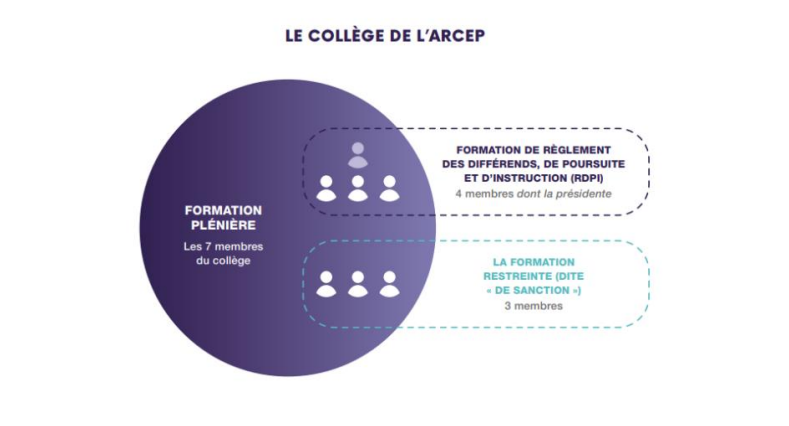In 2019, Arcep Decisions[1] authorised the firm Maore Mobile to use frequencies in the 900 MHz, 1800 MHz, 2.1 GHz and 2.6 GHz bands in Mayotte, in addition to stipulating the obligations imposed on the licenceholder. In December 2022, the Arcep Body responsible for settling disputes, legal proceedings and investigations (aka “RDPI” Body) ascertained that Maore Mobile had failed to meet its network rollout obligations and its obligation to cover the cost of conducting mobile quality of service and coverage audits. The Authority ordered the operator to comply with both of those obligations: by 15 December 2023 for its rollout obligations and by 15 March 2023 for its obligation to pay for QoS and coverage audits.
Withdrawal of Maore Mobile’s frequency licence in Mayotte
After having ascertained that Maore Mobile had not provided evidence of having complied with its obligations by the deadlines stipulated in the Order, the RDPI Body sent the operator a statement of its objections and forwarded the matter to Arcep’s Restricted (aka “Sanctioning”) Body. Having ascertained the failure to comply by the deadline, through a Decision dated 28 June 2024, this Restricted Body sanctioned Maore Mobile by withdrawing its rights to use frequencies in the 900 MHz, 1800 MHz, 2.1 GHz and 2.6 GHz bands in Mayotte[2].
The Restricted Body noted that none of the evidence submitted provided proof that:
- first that, as of issuance of the Order to comply, the firm Maore Mobile had paid the outstanding amounts owed to the service provider responsible for performing the quality of service and mobile coverage audits for the years 2019 to 2021;
- second, that the firm Maore Mobile would comply with its rollout obligations. In particular, it was not clearly evidenced that the firm was still using the aforementioned frequencies, which it was assigned in order to provide mobile services in Mayotte.
A sanction in support of regional digital development and consumers
The Restricted Body concluded that the firm Maore Mobile’s failure to comply with the obligations to which it was subject, namely rollout obligations in Mayotte and the obligation to pay the QoS and coverage auditor, has adverse consequences for the proper use of the State-owned wireless assets, regional digital development and territorial interests, and for fair and effective competition between operators for the benefit of consumers.
As a result of this withdrawal of its rights of use, all of the frequencies assigned to this firm up to now in the 900 MHz, 1800 MHz, and 2.1 GHz bands in Mayotte, through Arcep Decisions No. 2019-1369 and No. 2019-1370 amended, will be added to the frequencies being assigned through the procedure that was launched by the Order of 15 July 2024[3], in accordance with the rules set forth by Arcep[4].
How the Arcep Executive Board works
Three of Arcep’s different competencies are exercised within three distinct Executive Board bodies:
- The Plenary Body which is composed of all seven Board members. It deliberates over every Decision and Opinion, with the exception of those which, as expressly stipulated by Law, fall under the purview of one of the other two competent bodies;
- The Body responsible for settling disputes, legal proceedings and investigations (RDPI) which is composed of four of the seven Board members, including the Chair, and which is responsible for opening prior examination procedures, issuing formal notices, notifying grievances and settling disputes;
- The Restricted (sanctioning) Body, which is composed of the three remaining Board members, and responsible for imposing (or not imposing) penalties.
Associated document
[1] Decisions No. 2019-1369 and No. 2019-1370 amended
[2] Decisions No. 2019-1369 and No. 2019-1370 amended

